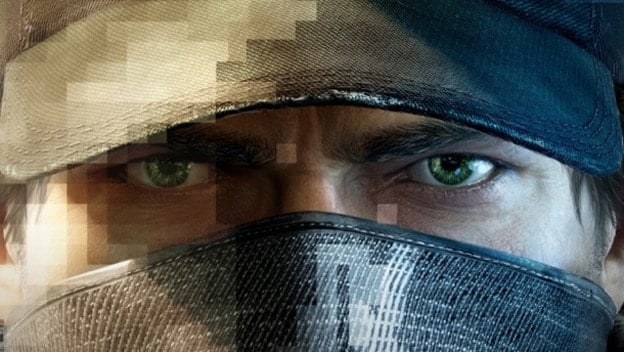The coming generation of consoles is a strange one. We’re seeing console-based MMOs multiply like rabbits, open-world titles are taking over the industry, and the shift to x86 architecture will make for an entirely different system infrastructure. On the whole, these changes are beneficial; anything different is good after the roughly seven-year run of current consoles. Clearly, the developers and publishers that make up the industry are completely on-board with the PS4 and Xbox One, with next-gen launch lineups looking better than ever. Why, then, do so many studios continue to shoot themselves—and next-gen consoles—in the foot by developing for all four (or two, if exclusivity is involved) platforms?
There is, of course, a duality to this issue. One core factor is that cross-gen development lends to the option of not upgrading to a PS4 or Xbox One. This isn’t necessarily a bad thing. As noted by my Cheat Code Central colleague Jake Valentine, “there may be many people who are hesitant to be early adopters” following the numerous hardware catastrophes of current-gen systems—which is to say nothing of daunting next-gen price tags. That the Xbox 360 and PlayStation 3 will continue to be supported with cross-gen releases such as Destiny , Watch Dogs , Call of Duty: Ghosts , Assassin’s Creed IV: Black Flag , and more is good, because it doesn’t strong-arm anyone into purchasing the next line of hardware. We’ve seen the opposing strategy—of up and leaving one system to rot when the new one comes out—employed for many other systems, particularly in the PS2/Xbox transition, but also in the Wii U, and it was pretty friggin’ annoying.
However, this title-based freedom is seen only when examining the situation from a consumer’s perspective. In regards to the PS4 and Xbox One, the continued release of current-gen titles and the advent of cross-gen projects risks undermining the value of next-gen hardware. “Well, I could drop $400-500 on a new system, or I can pick up a copy of that game for my PS3/Xbox 360,” would describe the common reaction to the scenario, promptly followed by, “Yeah, I’m gonna go with the cheaper one,” in most cases. If a game is available for multiple platforms, the premier platform loses that title on its list of buyer incentives because it no longer holds an advantage. This will surely slow the sale of Xbox Ones and PS4s, consequently hindering the games exclusive to the two.
With that said, it’s quite obvious that Sony and Microsoft aren’t against cross-gen projects, nor do they oppose continued releases for their current-gen systems. With the PS3-exclusive release of Gran Turismo 6 on the horizon, Sony is staying true to their early claim that the PS3 would have a ten-year lifespan. And we’re seeing similar support from Microsoft, which announced at E3 that the Xbox 360 will soon be seeing its umpteenth hardware redesign. Our own Josh Engen highlighted this in a recent piece , pointing out that Sony and MS would have to be stark raving mad to jump off hardware lines that have each sold over 70 million units. However, this intent also conflicts with their next-gen agenda.
In order for the two systems to coexist, there would have to be a balance between publishers, developers, and manufacturers. PS4 and Xbox One wouldn’t be allowed to dominate first-party releases, third-party releases would be allocated according to the benefit of a given platform, and development costs would have to be balanced between next- and current-gen systems. Unfortunately, the odds of such an agreement being reached are straight out of a fairy tale. It does serve some purpose, however, if only in pointing out the stupidly skewed definition of “the same game” that multi-gen developers have come up with—a definition for which “but different” has become the go-to punctuation.
It’s obvious that cross-gen releases aren’t the devil, but they aren’t wholly beneficial either, especially from a marketing standpoint. However, it is true that developing a title for two platforms invariably leads to quality being set by the lowest common denominator. In this case, we’re looking at titles being developed for two different generations of hardware, which adds two entirely unrelated system architectures into the mix. This will ultimately lead to next-gen versions being limited by current-gen iterations.

This should sound familiar. It’s exactly what goes on in the PC Master Race vs. Consoles FOREVA debate. And that’s a really big problem. If there is anything more counterintuitive than causing console owners of the same brand (Sony or Microsoft) to compete and gripe with one another, I’ve yet to hear of it. And quite frankly, I don’t want to know what it is. And that’s assuming that both versions play well; I don’t even want to see the storm of vitriol following a shoddy PS3 release that plays perfectly on PS4. One hardware debate is enough; we don’t need an industry filled with the ravings of how many citizens are on-screen in a certain version of Watch Dogs , or how detailed a ship is in Assassin’s Creed IV .
With hardware differentiations, release planning, competing publisher motives, and two independent (one fledgling) console lines to manage, Sony and Microsoft certainly have their hands full in the next-gen. But, at present, the two most prominent outcomes seem to be no change and negative change. With any luck, new information will come to light that can shed some positivity on the ordeal.
